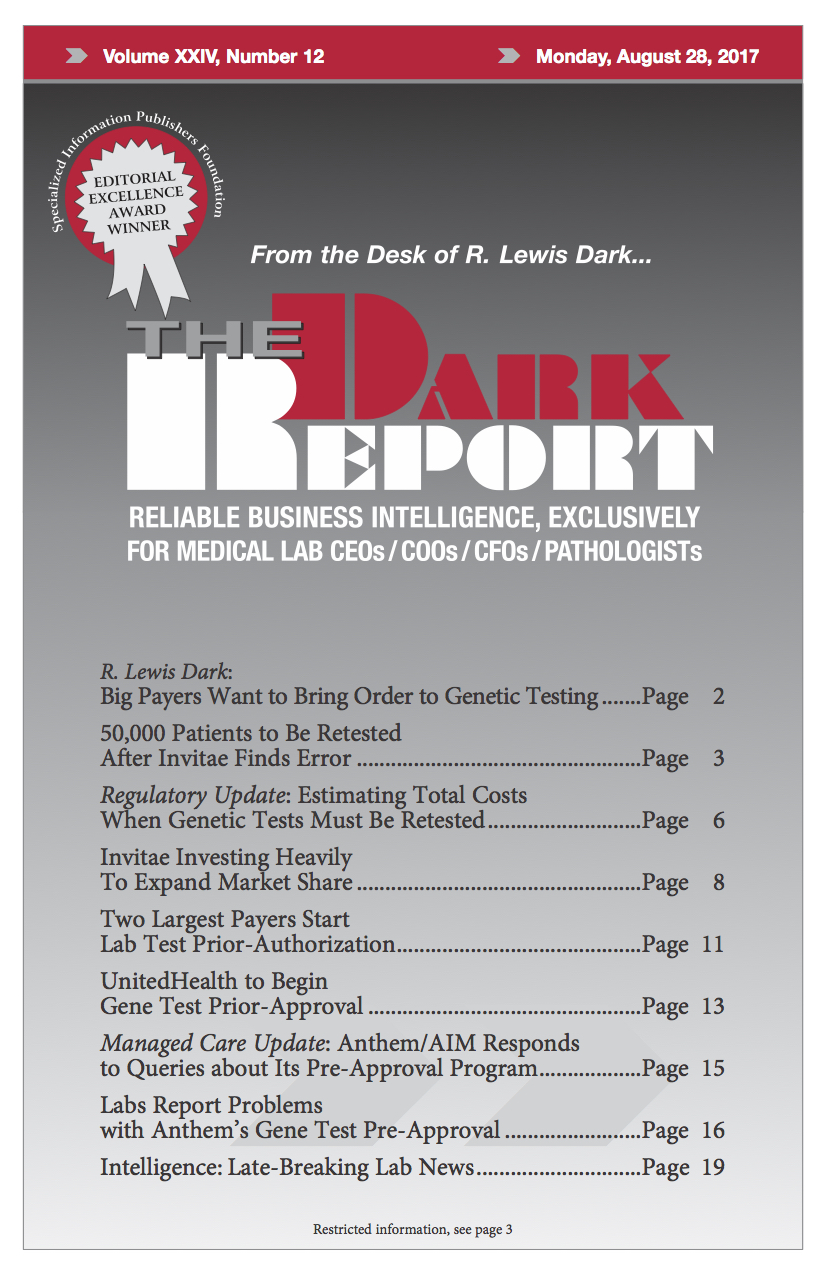CEO SUMMARY: Once Anthem and UnitedHealthcare establish their respective genetic test prior-authorization programs, a new era for genetic testing will commence. The 80 million beneficiaries served by these two payers make up half of the individuals who have private health insurance. It is reasonable to expect that other health insurers will follow the lead of …
Two Largest Payers Start Lab Test Pre-Authorization Read More »
To access this post, you must purchase The Dark Report.


